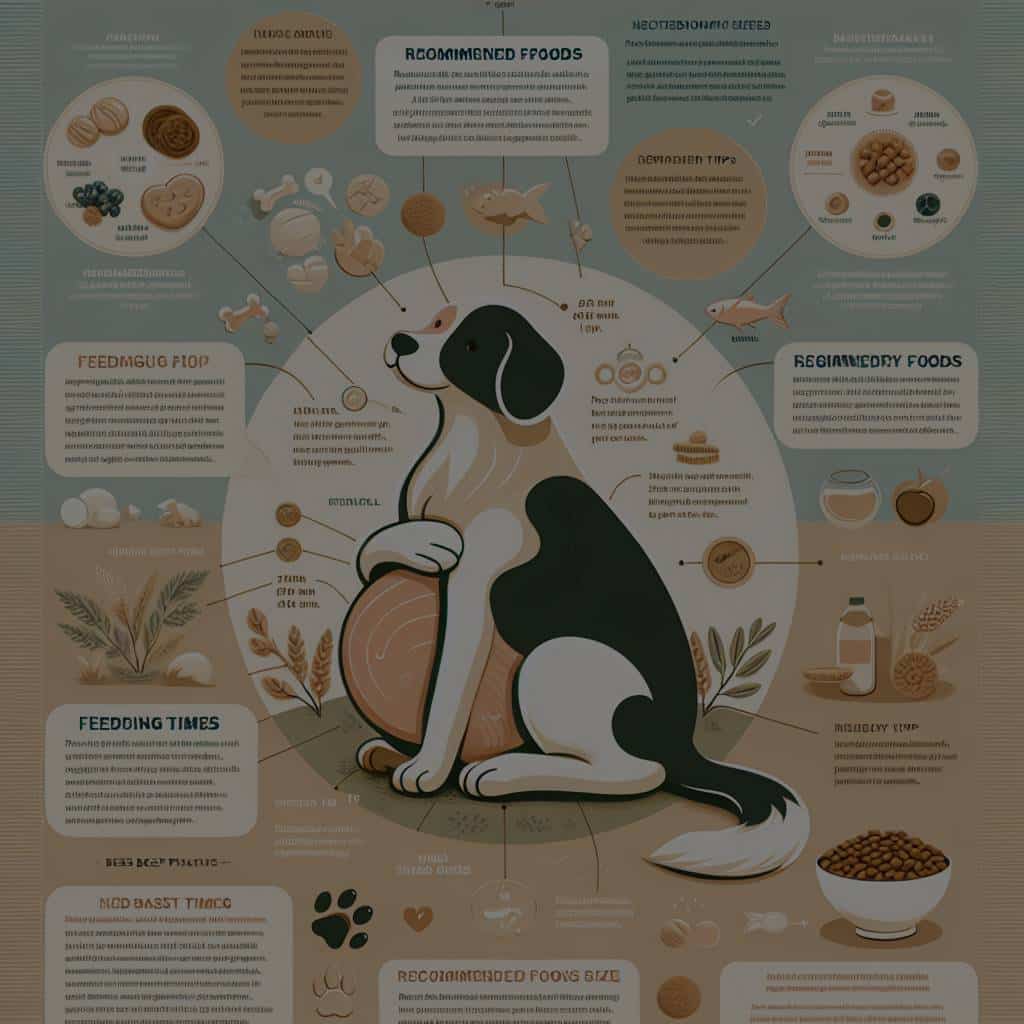As pet owners, one of the most rewarding experiences can be seeing your beloved dog go through pregnancy and give birth to adorable puppies. With the excitement, however, comes a significant responsibility. One of the most crucial tasks is to ensure that you adequately meet the nutritional needs of your pregnant dog.
Understanding the Dog’s Pregnancy Journey
Before diving into the specifics of a pregnant dog’s diet, it’s essential to understand what happens during a dog’s pregnancy. Typically, a dog’s pregnancy lasts for about nine weeks, roughly 63 days. Throughout these weeks, the dog’s body experiences significant changes, and their energy and nutritional needs fluctuate.
Also read : What Are the Best Low-Maintenance Fish for a Beginner’s Freshwater Aquarium?
In the early stages of pregnancy, there is little to no change in the dog’s weight. However, as the pregnancy progresses, the dog starts to gain weight, primarily due to the weight of the growing puppies. This weight gain requires an increase in energy intake, which must be met through the dog’s diet.
Diet Changes for a Pregnant Dog
Just as humans have specific dietary needs during pregnancy, so do dogs. A pregnant dog’s diet should focus on providing the right balance of proteins, fats, carbohydrates, vitamins, and minerals. During the first few weeks of pregnancy, your dog’s regular food will suffice. However, as the pregnancy progresses, and especially in the last few weeks, you should gradually increase the amount of food.
Have you seen this : What’s the Correct Procedure for Administering Medication to a Reluctant Cat?
One of the crucial elements in a pregnant dog’s diet is protein. Protein is essential to support the growth and development of the puppies. It should constitute about 30% of the diet. Healthy sources of protein include meats like chicken, turkey, and fish.
Fat is another essential element. It provides the energy needed to sustain the pregnancy. Fat should constitute about 20% of the diet. Healthy sources include oils like fish oil and flaxseed oil.
Carbohydrates are needed for energy too. They should constitute about 30% of the diet. Healthy sources include brown rice, sweet potatoes, and oats.
Vitamins and minerals are also important, especially calcium and phosphorus, which are essential for bone development.
Feeding Schedules for a Pregnant Dog
Feeding schedules might need to adjust during a dog’s pregnancy. In the early stages, you can maintain the regular feeding schedule. However, as the pregnancy progresses, you may need to switch from two meals a day to several smaller meals spread throughout the day. This change helps to prevent the mother dog from becoming too full, which can put pressure on her uterus and cause discomfort.
Special Considerations for Pregnant Dogs
Besides the basic nutrition needs, there are other special considerations to bear in mind when dealing with a pregnant dog.
One of these is the need for fresh water. Pregnant dogs need an ample supply of fresh water to stay hydrated and to produce milk for the puppies.
Secondly, avoid supplements unless recommended by a vet. While it might be tempting to give your pregnant dog supplements, unnecessary supplementation can cause more harm than good.
Thirdly, avoid overfeeding. While it’s necessary to increase the amount of food for your pregnant dog, overfeeding can lead to obesity, which can complicate the pregnancy and the birthing process.
Choosing the Best Food for a Pregnant Dog
Choosing the best food for your pregnant dog is essential. High-quality commercial dog foods that are labeled as ‘complete and balanced’ are usually adequate for pregnant dogs. These foods meet the nutritional standards set by the Association of American Feed Control Officials (AAFCO), ensuring that they provide all the necessary nutrients for a dog’s health.
However, if you prefer to prepare homemade food for your dog, consult with a vet or a pet nutritionist to ensure that the diet meets all the nutritional needs of your pregnant dog.
In conclusion, pregnancy is a critical phase in a dog’s life, requiring careful attention to nutrition. Providing your pregnant dog with the best diet will not only ensure her health but will also contribute to the health and wellbeing of her puppies. As always, if you are unsure about any aspect of your dog’s diet, consult a vet.
Potential Health Risks for Pregnant Dogs with Poor Nutrition
A pregnant dog’s nutrition plays a crucial role in maintaining her own health and the health of her puppies. Poor nutrition can potentially lead to a variety of health risks for both the mother and her puppies.
One key issue is that inadequate nutrition can lead to poor body condition in the mother. The extra strain of carrying puppies can quickly deplete her energy reserves, leading to malnutrition or even severe health conditions if not properly managed. This can impact her ability to care for her puppies post-birth. In particular, poor nutrition can affect milk production, making it harder for the dog to nurse her puppies effectively.
The puppies too can face health risks if the mother’s nutrition is not properly managed. Malnutrition in the mother can lead to low birth weights amongst the puppies, which can make survival more difficult. Inadequate intake of certain vitamins and minerals can lead to developmental issues in the puppies. For instance, insufficient calcium can lead to skeletal problems as the puppies grow.
Thus, taking these potential health risks into account, it becomes even more vital to focus on providing high-quality food to meet the nutritional needs of pregnant dogs. Remember, don’t hesitate to consult with a vet if you notice any changes in your dog’s body condition or behaviour during the weeks of pregnancy.
Adjusting the Diet Post-Pregnancy
After giving birth, a dog’s nutritional needs change once again. Your dog will require a lot of energy to nurse her puppies and recover from the birthing process. This period, called lactation, has the highest energy requirements of any stage in a dog’s life.
The diet of a nursing dog should continue to be high in energy and nutrients. You might need to switch to a high-quality puppy food, which is formulated to be nutrient-dense, to sustain her during this period. The main goal is to maintain the dog’s body condition, ensuring she has enough resources to produce milk and care for her puppies.
Remember, monitor your dog’s food intake and body condition closely during this period, and adjust her food intake as necessary. Weigh her regularly to ensure she’s maintaining a healthy weight.
In summary, proper nutrition is key to ensure a healthy pregnancy, successful nursing, and overall health for your pregnant dog and her puppies. However, each dog’s needs can vary, so always monitor your dog’s condition and consult a vet if you have any concerns. Providing the best dog food, whether commercial or homemade, and ensuring an adequate feeding schedule will go a long way in promoting a healthy pregnancy and post-pregnancy period.
In conclusion, the journey of a dog’s pregnancy and nursing period is a significant one. It demands extra attention, care, and nutritional support. Providing your pregnant dog with the best care will not only ensure her health but will also contribute to the health and wellbeing of her puppies. Remember, if you are unsure about any aspect of your dog’s diet, always consult with a vet.











